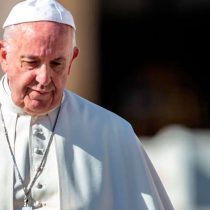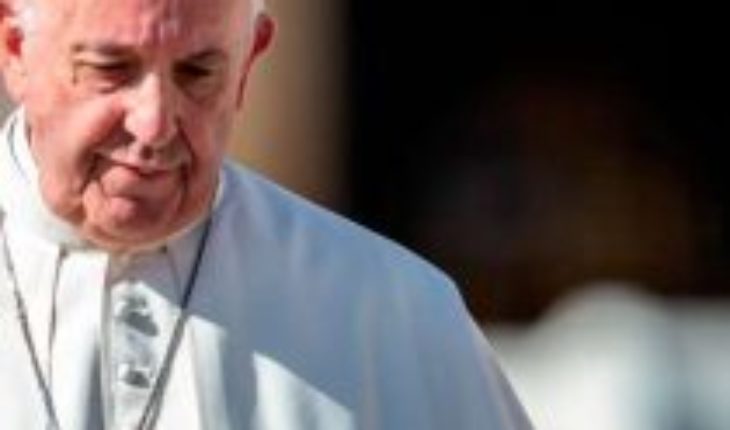
Pope Francis has just published a “Post-Synodal Apostolic Exhortation” in response to the Synod (Greek “walking together”) of the Amazon. In this synod the bishops corresponding to this geographical territory gathered in Rome, under the authority of the Pope, to reflect on the need for important reforms for his local Church. From this synod he has emanated a final document, approved by a large majority of the bishops gathered, in which the need for key reforms for that Church was proposed, such as the restoration of the diaconate for women and priestly ordination for the current married deacons (called “proven men”).
Pope Francis, in response to this synodal document, has published an apostolic exhortation entitled “Dear Amazonia” in which he sets out his refusal to these reforms, although not definitively, at least in a peculiar and surprise way, since he himself as an authority has convened a Commission to study the diaconate of women and has promoted university-led courses on this subject. That is why this refusal and the use of theological arguments he has offered are striking. On this document, as a woman and believer I wanted to present some reflections, existentially crossed both by the Chilean revolt and by the eve of 8M.
To whom does the Pope really speak in this exhortation? In the beginning it claims to be aimed at everyone, however, in the text there are traces that allow us to imagine only two types of receiving readers: the world clergy and the synod bishops. You don’t see much more than that in the interest of this exhortation. This is evident in the treatment of the issues, since, for example, it seems to continually regard the indigenous world as “different”, as “another”, trying to convince their readers to accept something “strange” that can benefit them: “We must avoid understanding them as “uncivilized” savages. They merely developed different cultures and other forms of civilization that were once highly developed” (32, QA). “Therefore, collecting your life experience will do us good.” (36, QA). He tries to convince them, paternalistly, probably thinking of speaking to the most conservative hierarchy reluctant to non-dominant cultures: “The wisdom of the way of life of the original peoples—even with all the limits it may have—encourages us to deepen this longing” (22, QA). Later, when it comes to the most controversial issues of the ecclesial sphere, such as the diaconate of women and the ordination of married men, it seems to address the Synod bishops directly, adopting a sobering speech for them.
The Pope puts the ecological discourse at the heart of his exhortation. I had already done a thoughtful work on this subject with the Encyclical Laudato Si’. Addressing it in response to the Synod of the Amazon seems fine, but it is insufficient. One issue not yet addressed, considered a serious absence of Laudato Si’ from the perspective of ecofeminism, is the relationship between land domination and women’s domination. On this, Francis still seems ignorant. Even the Synod of the Amazon makes a reference to this, which the Pope completely ignores in his exhortation: “The wisdom of the ancestral peoples affirms that the mother earth has a feminine face”. (101, Amazon Synod). Francis merely paraphrases his encyclical: “a true ecological approach always becomes a social approach, which must integrate justice into discussions about the environment, to hear both the cry of the earth and the cry of the poor” (8, AQ), completely invisibly invisibly invisibizing the specificity of women in the problem.
It seems that even to progressive or liberationist sectors ecological discourse would be sufficient to conform and not thus withdraw its support for the current Pope, despite his current refusal to reform ecclesials. It should not be forgotten that most of them are also male and/or clerics. The context of discourse in this exhortation seems to be built as a political strategy of “compensation” aimed at the progressive world that supports the Latin American Pope, rather than an honest and profound reflection on the dimension of the socio-environmental crisis. Thus, this position, both of the Pope and of the progressive sector that supports it nonetheless, ends up being a public definition that women believers can – and must – continue to wait as last in a great row for much longer, even behind the poorest. The truth is that on the socio-environmental crisis a pope cannot do much more than offer a message. In this sense, it is at least paradoxical that Pope Francis believes more likely to stop climate change, injustice and crime against the Amazon than to restore women to the diaconal ministry – widely documented in the origins of Christianity – and in his dignity with full rights in the Church he directs and over which he has the power to make changes. It is sad to note, on the reverse of Pope Francis’ ecological discourse, that pope does not fear sacrificing Catholic women and their historic demands in the Church. Throughout the exhortation he refers to women only on 14 occasions: once in relation to slavery, a reference to graph indigenous suffering, twice mentioned in poems quoted, and the remaining ten times under the subtitle “The Strength and Gift of Women” to deny them access to ministries.
What seems to be the most afraid of Francisco? International media outlets say Pope Francis did not grant the most felt demands as reforms for the Church for fear of a schism between conservative and progressive clergy. The truth is that the schism is already evident in the church: 70% of God’s people are in favor of change, yet it is the hierarchy that has been in the question of maintaining the status quo. Isn’t that a schism? Quiet, but it is. People just leave without saying anything. It makes no sense that she sought to “avoid” a schism in the clergy, regardless of whether it occurs in the rest of the People of God by allowing women to be excluded from decision-making in the Church. That’s not reconciling, and it’s not fair. It must be said that the Pope has also not acted in a spirit of collegiality, by refusing to accede to the request that a synod of bishops (non-Europeans) has formally presented to him. Wasn’t God in them? It is regrettable to say, but on this issue it seems that Francis simply referred to the use of his “petrine power”, the one-man and universal power that derives from monarchies and not from the gospel.
I will allow myself to recall what the Synod said about the need for the diaconate of women, in a truly renewing spirit for the Church: “In the many consultations in the Amazonian space, the fundamental role of religious and lay women in the Church of the Amazon and their communities was recognized and emphasized, given the many services they provide. In a high number of such consultations, the permanent diaconate for women was requested” (103, Amazon Iano Synod). The Synod also reminds us that it was Pope Francis himself who opened himself up to the possibility of studying the issue of the diaconate of women through the installation of a Commission, which has generated (false?) expectations throughout the Church that moans for changes.
Pope Francis’ argument against women’s ordination is impressive: “This invites us to expand our gaze to avoid reducing our understanding of the Church to functional structures. Such reductionism would lead us to believe that women would be given a status and greater participation in the Church only if they were given access to the Sacred Order. But this look would actually limit perspectives, direct us to clericalize women, diminish the great value of what they have already given, and subtly cause an impoverishment of their indispensable contribution” (100 AQ). Because, moreover, “Jesus Christ presents himself as the Bridegroom of the community that celebrates the Eucharist, through the figure of a man who presides over it as a sign of the one Priest” (101, AQ). The first date argues that women are not wise enough about our own needs, since demanding what we ask would be a supposed evil for ourselves. And the second reveals sexism and misogyny engrossed in Catholic pseudo-spirituality, after which it is believed and affirms that God is male, without the slightest modesty. In this, Pope Francis followed the doctrine of the Chilean priest Carlos Yrarrázabal, parish priest of the Parish El Bosque – the same by Fernando Karadima – who in an interview on television set out these same arguments about women, which cost him his episcopal appointment after the controversy that his statements generated in society and the public sphere.
On the other hand, the Synod also proposed a place suitable for priests to allow the emergence and development of other ministries: “Priests must take into account that the deacon is at the service of the community by appointment and under the authority of the bishop, and that they have an obligation to support permanent deacons and to act in communion with them” (105, Synod Amazonia); on the contrary, Pope Francis almost completely ignored the diaconal ministry of married men – he only mentions them once in all the exhortation, referring to the need for them to increase in quantity in the Amazon – and worked to exhort the relevance and power of priests, claiming his greater authority: “The priest is a sign of that Head pouring out grace before all when he celebrates the Euistsource and culmination of all Christian life. That is his great power, which can only be received in the sacrament of the Priestly Order. That’s why only he can say, “This is my body.” There are other words that only he can utter: “I absolve you of your sins.” Because sacramental forgiveness is at the service of a worthy Eucharistic celebration. In these two sacraments is the heart of his exclusive identity” (88 AQ). Even more, it promotes the need for seminars to captivate indigenous people in the presbytery – what we might call “indigenous clericalization”, following the reference used by him on women – completely ignoring the need he set out Synod on the priestly ordination of permanent deacons.
Sadly, on this occasion the Pope chose to rule for the hierarchy and not for the People of God. This tension hierarchy-people is deepened by this exhortation and puts the legitimacy of the Church in question no longer from the outside, but from within, from her own heart.
I would have hoped that Francis would have reflected this quote from Laudato Si’ for himself this time as governor of the Church institution: “In Laudato si’ we remembered that “if everything is related, also the health of the institutions of a society has consequences on the environment and the quality of human life […]». (23, EQA). The quality of life of women in the Church no longer gives for more. Clericalism has them subordinate and unvisibilized despite their multiple free labors. Before the risk of women being clericalized, we must assume the risk of having a clergy that does not “womanize”. That is the origin of today’s clericalism. Much of the forms of today’s clericalized and authoritarian priesthood could change with women’s admission to the spheres reserved so far only as a privilege for the male.
The Pope has missed a great opportunity. When had a Pope gained more support to promote ecclesial reforms since the Second Vatican Council? His refusal, further supported by ultraconservative theological arguments, is impressive, as he had the broad support of a synod of bishops, who asked for local and limited reforms, to give a new impetus to their communities. These small reforms, however simple and narrow, had the power to become a small gradual first step towards a path of ecclesial renewal that would allow hope to be maintained in the midst of an acute crisis. If before many women felt uncomfortable in the Church, today the feeling is of exclusion. Undoubtedly, the exodus of women will continue to increase behind this misguided sign of Francis. And they cannot be blamed for lack of faith or conviction, because the Church’s debt to them is too great to continue to blame them.
The content poured into this opinion column is the sole responsibility of its author, and does not necessarily reflect the editorial line or position of El Mostrador.





